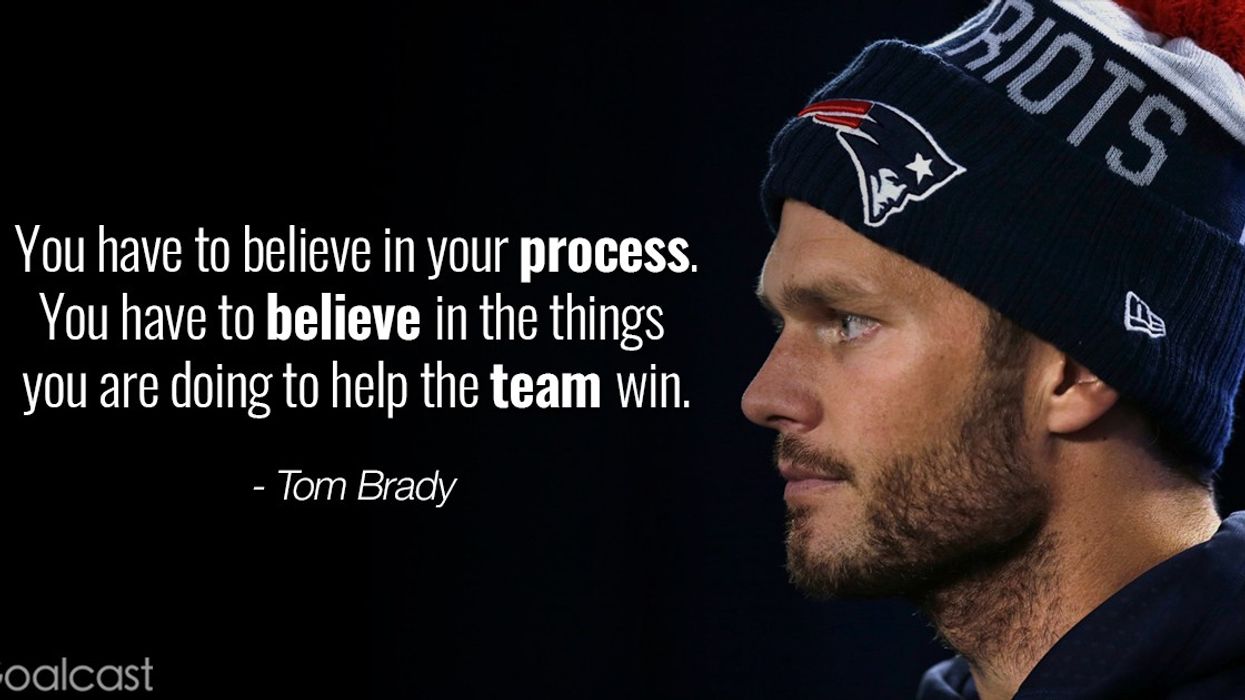The First Date Rule: How To Be More Compassionate and Self-Loving
Years in, I still cringe at the idea of loving myself. While try to be compassionate to others, it's a struggle to always love myself. But I’ve found a solution that works for me. It will work for others, too. This is a lesson for those of you who may feel same way about self-love. The First Date Rule: How To Be More Compassionate and Self-Loving Until you value yourself, you won’t value your time. Until you value your time, you will not do anything with it. – M. Scott Peck First, let’s talk about how self-love impacts our ability to achieve goals. It’s a strange paradox that someone with goals is striving to change their life. They are working to change who they are too, and yet they are still told it’s important love themselves as they are. I don’t think I’m the first person to find that just a little irrational. Yet it’s true: you do need to love yourself if you are going to be successful. In fact, without it, you’ll fail -- if not on the path to reaching your goals, then in some other context. Here’s why: There are three components to self-love: self-acceptance, self-respect, and self-belief. Self-acceptance means you took the time to peel back the layers to figure out who you are. It means you’ve accepted all that comes with that realization. We all want to be the best we can be, but knowing what makes you human is a huge advantage for you. The less time you spend trying to please others, the more time you can spend moving along your unique path. Self-respect means you think about your own needs first. You establish healthy boundaries for asking of, receiving from, and giving to others. You say ‘no’, and don't feel bad about it. Respecting yourself in this way frees up time to achieve your goals. It also affords you calculated windows of time to give back. Self-belief means you know that you hold the power. How your life plays out depends on what you choose to do each day. It’s a powerful perspective, and it's loaded with responsibility. But it's also most likely the one to lead you to the promised land. Combine these three things and you’ve got a recipe for loving yourself well. And based on the each description, you can see how self-love improves your ability to achieve goals. The real work is getting people like myself to buy into these things. If I scoff at self-love, or don’t know where to start, what’s the next step? My suggestion is to take self-love outside of yourself. Make it rational. Package it in a way that not only makes sense, but seems desirable. And now, here’s the kicker. You’ve already embodied all three of the components of self-love without thinking. That’s how The First Date Rule For Self-Love was born. Think about the last time you went on a first date. No first date in the history of the world will go well if you argue with, call out, or disrespect the other person. How likely are you to accept what someone shares about their life on a first date? How keen are you to ensure he or she feels respected? The effort -- in this context -- doesn’t even feel like work. It’s the right thing to do. And that’s the part you should internalize and apply to your goals. The First Date Rule is simple: if you wouldn't do it to or around someone else on your very first date, don't do it to yourself. Treat this rule like a filter, and apply it to your thought process and daily actions. Next time you think about how unhappy you are with your progress, think about the language you’re using. Would you talk to another human being you just met like this? You can still challenge yourself, as long as it’s not too excessive. At some point, the dating analogy doesn’t apply to you achieving goals. But it can also prevent negativity from swirling around the mind of someone who lacks compassion for themselves. READ: How to Make Friends with Yourself and Uncover the Inner Dialogue The First Date Rule is a tool for developing character and accountability. It’s a strategy for getting you outside of your own head to objectively interpret your actions. Where do you stand? Here are three examples from common areas of life to get you started with implementing The First Date Rule: Work Love your work, but don't brag about it. Refrain from beating yourself up if you aren't where you'd like to be yet. Your work does not define who you are as a person. Health Eat a moderate amount of food. Be mindful as you eat. Also, don’t be a slob when you eat; you wouldn’t even consider it on a first date. Family Keep track of your commitments. Don’t make promises you can’t keep, and make up for it when you do. Keep healthy boundaries. Talk about your problems and come up with solutions together. Upon further inspection, The First Date Rule For Self-Love is a mindset for doing things the right way. It’s common sense that you’d do these things for a first date. But common sense is rarely common. What about the people already in your life? What about you? For those of you who struggle with the idea of loving yourself, I urge you to give this tool a try. It has changed my life for the better, and it will change yours, too.
100 Credits a Day: The System for Making Stress Work for Your Goals
What is your relationship with stress like? A tough question to answer, if only because the term ‘stress’ takes on many forms and can fall under many different umbrellas. It might be appropriate to first identify how you perceive and classify stress in your life. Maybe you describe stress as the anxious feeling you get when you’re stuck in traffic on the highway or arguing with a family member. Maybe you know that stress can also be a good thing, and that it’s a necessary component to one’s athletic performance. But however you define it, you should know that it’s crucial to effectively manage and cope with stress in order to achieve your goals.100 Credits a Day: The System for Making Stress Work for Your GoalsEvery stress leaves an indelible scar, and the organism pays for its survival after a stressful situation by becoming a little older.-- Hans Selye (1907-1982)Have you ever considered the relationship between stress and your goals?There are two kinds of stress: distress and eustress. Distress is a negative stressor that causes anxiety, decreases our performance, and leaves us feeling like we aren’t in control. Eustress is a positive stressor, can be motivating, helps us focus, and places control in the hands of the person experiencing it.Positive or negative, stress must be managed effectively if you are to achieve great things. There’s a high probability that the eyes on this article belong to ambitious people, possibly working long hours. To achieve great things, your actions must be sustainable. Great results are the culmination of many 1% advancements. How do yours stack up?What you must also understand is that each action, or 1% advancement, is, in some way stressful. Whether it’s distress or eustress, your body is dealing with it, somehow. If you were to study stress further, the first model of stress you would discover is called the General Adaptation Syndrome (GAS), designed by the “father of stress,” Hans Selye. This theory will help you understand how crucial it is to deal with stress.The General Adaptation Model is as follows:Stage 1: Alarm -- the initial reaction of the body to a stress is to label the stressor as a threat or danger.Stage 2: Resistance -- once the body has acknowledged the stressor, it uses energy and resources to fight against the stressor.Stage 3: Exhaustion -- as the stressor lingers, the body exhausts itself and gives in. When it’s eustress, stage 3 is when the benefits of things like exercise begin to register. When it’s distress, the exhaustion phase can quickly lead to illness if not handled properly.Everything you see play out in “real life” -- the good and the bad -- happens in stage 3. The benefits of exercise, like improved fitness, weight loss or mental health, don’t arrive until you’ve exhausted your body to a point where it must adapt to the stress. That’s why you’ve probably heard someone say you must lift more or run faster than you did last time to get continue to improve. It's because your body has already adapted to you running at the previous speed. Exercise is generally a eustress, because the benefits of the stress are positive. The flipside, however, is that stress can be devastating if you are routinely subjecting yourself to forms of distress and aren’t coping with them. For example, if you stay up all night working and don’t sleep, your immune system will not have time to repair itself. Eventually, you will get sick and be forced to take time off. How sick? It depends how far into the hole you put yourself. The human body is scarily smart. If you choose not to give it rest or to cope with stress, the body will find a way to get the rest it needs. That might mean you get the flu and are in bed sleeping for days. In cases of chronic, long-term stress left unmanaged, conversations about diseases like cancer become a real threat.READ: Beware of Burnout: Avoid These 4 Obstacles to Work-Life Balance It all depends how far down the wormhole you push yourself, and how long you leave your stress unmanaged.None of this is sustainable for you or your goals, so I implore you to not be one of the internet warriors preaching you must “hustle” past the point of exhaustion to make it. But how do you keep things balanced? There must be a system in place to measure all of this.100 stress credits a dayEnter the 100 Credits A Day Model.If we're given 100 "stress credits" a day to live your best life and work towards your goals, how would you spend them? If once a credit were gone, you could not get it back until the next day, how would that affect your choices? Just like a bank, there will be days where you “overdraw” your 100 credits. That’s life. This is allowed, but those extra credits come out of the next day like a loan, meaning you might start Tuesday with only 90 credits total. It is on you to get out of the debt you create by scheduling time to cope with that stress and let your body repair itself.READ: 7 Scientifically Proven Ways to Reduce Stress at WorkBy now you should understand that effective work-life balance is not spending equal energy in every area of your life. Work-life balance is simply achieving peace of mind in all of life’s arenas. Using this model, which areas of your life would you allocate the most credits towards? 100 credits a day will force you to ask yourself some really hard questions. It will show you just how high the stakes are related to stress. Beep your horn at some idiot on the highway and fume about it for 10 minutes thereafter? There goes five of your credits for the day. Was that exchange really worth it?Pretend you spend 30 on your family, 40 on your work day, and 15 at the gym on a given workday. That leaves you with 15 credits. Where do they go? Can you see how if you chose to invest those 15 credits day after day, making small advancements towards a goal you care about, it would all still work out in the end? How that might be a better approach than staying up all night hustling? Wouldn’t you prefer that to getting sick?READ: Don't Be a Tool: Balancing Work and Well-Being in the Digital AgeNo one can tell you the right or wrong way to do it. It’s your body, your life, and your goals. Stress is a game designed by nature, and she’s undefeated. It’s on you to manage and effectively deal with your stress. Determine the most effective process for spending your daily credits and constantly tinker. Remember the big picture, and that achieving goals won’t matter if you’re too sick to enjoy the benefits of achieving them.But we all only get 100 credits a day to achieve our goals, so spend them wisely.
7 New England Patriots Quotes on What it Takes to Be a Winner
The New England Patriots have been the model of consistent success in the NFL since the turn of the century. In an environment where salary caps, injuries, and distractions caused by social media threaten to take teams from their primary focus, the Patriots organization has found a way to always prioritize winning. Their efforts have led to five Super Bowl championships in 17 years.The seven quotes below are from people within the organization over the past 17 years: the owner, head coach, and players like Tom Brady and Tedy Bruschi.Each quote conveys a unique understanding of what it takes to be a winner in life and business. Each of these world-class performers speaks to a model of the world that you can use to inspire your own success.7 New England Patriots Quotes on What it Takes to Be a WinnerMental toughness is doing the right thing for the team when it's not the best thing for you. -- Bill BelichickHow often do you delay feeling good in favor of doing what is right for your business?Coach Belichick makes it clear that the sum is greater than its parts. Sometimes other people and other things must take precedence over what you want most in the moment. In business like in football, being world-class means making sacrifices. Not always getting your first choice is the price one must pay to get to the top.If you choose to do things that you are passionate about, you will not only do them better, but most importantly, you'll be a significantly happier person. -- Robert KraftRobert Kraft is the chairman & CEO of a holding group that owns four professional sports teams and many other companies. He has a net worth 6.2 billion dollars. It stands to reason that he’d be chock full of secrets for conducting successful business.And yet, the most interesting part about this quote is that he’s talking about something attainable by all: choosing to involve yourself in things that you are passionate about. It can’t always feel like work when consistent effort is the goal. You must love what you do to be world-class.The week preceding the game is just as important, if not more important, to prepare yourself mentally to make sure you know the ins and outs of the opposition. It's all about getting ready for Jacksonville. It's a one-game season.-- Tedy BruschiTedy Bruschi was the defensive captain for three Super Bowl championships with the Patriots from 2001-2004.An example of how leadership trickles down, this quote shows how Tedy Bruschi mentally approaches each week.You have to believe in your process. You have to believe in the things that you are doing to help the team win. I think you have to take the good with the bad.-- Tom BradyTrying to be the best does not work. Instead, focus on giving your best each day, and let your ever-evolving process for achieving your goals dictate whether or not you are successful.It is unlikely that you will consistently put in the work or go the extra mile for a cause you don’t believe in.Do your job.-- Bill BelichickThere is no sentence that (arguably) the greatest coach of all time is more famous for than these three words: Do your job.As he explains, “Do your job” simply means focusing and executing on the 1-3 things the team is asking you to do well. It is well known that Coach Belichick values versatile players that can play multiple positions and understand the game at a high level. This mantra explains why; week in and week out as they prepare for new opponents, their “job” may change. The same goes with your business.Remember that what you got you there last time might not always render the same result this time. Become a student of your work and adapt to what’s being thrown at you.I think the great part about what I do is that there's a scoreboard. At the end of every week, you know how you did. You know how well you prepared. You know whether you executed your game plan. There's a tangible score. -- Tom BradyAny worthy pursuit will give feedback on how you’re doing. Tom Brady looks forward to receiving feedback, which means he also embraces failing hard and quickly. Feedback and failure go hand in hand.Take this lesson from arguably the greatest quarterback of all time: feedback is valuable. It gives you a reason to adjust, to tinker, and to keep doing the things that are helping you succeed. When you don’t shy away from feedback, you have data at your disposal that shows you how well you’ve done. There is no guesswork for you to do.There will be a time to reflect back and count them up, but… I’m still chasing it now. It’s a new season; I’m still chasing it.-- Bill BelichickThis quote truly says it all about the New England Patriots and how they perceive success. Success is fleeting. If you spend too much time dwelling on what you’ve done, you’ll miss out on opportunities to do and accomplish more. Where your focus lies is your greatest asset towards achieving your goals, and as such, you need to focus on what matters most.It may be hard to let your successes go; but there will be time. The legacy of your business will stay intact as long as you stay in the trenches, grounded and motivated by the large amount of hard work that must be done.READ: Focused, Humble and Healthy: The High-Performing EntrepreneurIt’s difficult to write a new narrative when you focus too much on reading your own biography. Make the choice to delay gratification and focus on what matters most with your business.
Overcome Failure: The 10 Dos and Don'ts of Regaining Your Confidence
Faced with failure, how do you respond? All of us fall short of our targets from time to time, but how we react is highly individual and, honestly, interesting to interpret. You can learn a lot after a defeat, particularly about your environment and how you label things. For example, when you are disappointed by failure, what do the people in your life say? How do you feel before you share the news that you’ve failed with them? Do they notice before you tell them? When your “thing” -- your business, job, sport, health, etc. -- isn’t getting the results that you’d like, what is the conversation like in your head? Overcome Failure: The 10 Dos and Don'ts of Regaining Your Confidence One possible effect of perceived failure is losing sight of why you felt capable enough to try it in the first place. Said another way, you “lose” your self-confidence after a failure. Some people are resilient enough to wallow in it briefly and bounce out of it, but others let it defeat them. If you are a member of the latter camp, this article will give you the keys to develop the resilience to overcome failure. Defined, self-confidence is merely a belief that you can successfully perform a desired behavior. It’s an important trait to have. Think about how often you perform a task that you believe is utterly impossible or a waste of time. My guess is never. But when your self-confidence is high, research shows that you are able to generate positive emotions, concentrate better, increase effort, and give yourself the momentum to achieve your goals. READ: The 10 Steps to Confidence That No One Told You About The following are the 5 “dos” and 5 “don’ts” of regaining your self-confidence after a defeat. The goal of all of them is to build a resilient internal environment so that when failure smacks you in the face, you can smack right back. One or more of these (whether adding positive habits or removing negative ones) may be the missing piece to regaining your self-confidence and getting back on track. DO Simulate a highly positive environment When you read "simulate," don’t take that as “fake it till you make it.” That’s definitely not useful in trying to regain self-confidence, as you’ll know what you’re doing is a farce. Instead, become hypersensitive to the places and people you are subjecting yourself to. If your recent failure was a big one, the last thing you need right now is to be around someone that labels themself as a “realist.” Whether you take a break from a few people to focus on yourself, or add a positive habit to your day like going to the gym, do what you can to ensure positive things are happening. Increase your expectations of yourself Your failure has you feeling like you aren’t worthy or good enough to achieve that goal. You weren’t capable of doing it before, so why should expect things to be different this time? It’s paramount that you persevere through this line of thinking and establish a higher bar for yourself, even if it scares you. Remember, you will always get what you tolerate. If your expectations of yourself are low, your results will be of low quality. Set a new realistic, but challenging short-term goal Set a goal that is realistic to get you back on track. Make sure that a little sweat equity is necessary to achieve it (read: don’t set a goal that takes no effort), but get an easy win under your belt. It may mean you put your current goal on the backburner, or that you “chunk” down your previous failure to a smaller, more achievable milestone. Think about it this way: if you failed going from step 1 to 2, what would going from step 1 to 1.1 look like? 1.2? 1.3? Ask for feedback You may have failed because you simply didn’t have enough information. While our ego tells us that it’s entirely our fault that we failed, we never actually “own” any of our accomplishments. There are so many factors that go into personal achievement that you may be overlooking something much more simple and easy on your psyche. Seek out someone you trust and ask for feedback. If your failure is still painful, maybe ask for feedback on a previous task that you worked on or for tips on how you might get better in an area. Surround yourself with individuals that are already doing it right It’s been said a million times that modeling is the key to the fastest results. Instead of reinventing the wheel, find someone that has what you want, ask them how they did it, then do it. DON’T Use sarcastic or negative self-talk What good does putting yourself down do? If your self-confidence is low, the last thing you should be doing is making an enemy out of yourself. It’s tempting to be negative about something that didn’t go your way. But this kind of behavior becomes cyclical, and gets harder to shake off as you continue to do it. READ: How to Talk Back to the Hater in Your Head Find a way to interrupt the pattern of telling yourself that you suck so that you can focus on fixing what went wrong. The truth is you must pick one or the other, because you can’t do both of them simultaneously. Pick the right one and stop wasting time. Put stock into the opinions of others What other people think shouldn’t matter, but doubly so right now. Don’t concern yourself with the opinions of others -- regardless of whether your failure was seen in a public light or not. While you should ask feedback from the 1% of people in your life you trust most, 99% of opinions are white noise. They won’t help. Distinguish from and draw boundaries between who you intentionally seek out feedback from and who gives it to you without asking. Self-confidence comes when you get results controlling the things you can control. You will never control what other people say, think or do -- so forget about it. Take criticism personally Because you’re struggling, this is a good time to remember that everyone is fighting a battle you know nothing about. The most negative or critical people in your life are likely the people who have seen and experienced things you can’t understand. Taking the high road is not always easy. In fact, it’s demonstrably more difficult. Don’t internalize or dwell on something someone else probably already forgot they said. Sit around and do nothing Not taking the initiative to change is how you get caught in a cycle. Even the smallest positive action can jumpstart you and put momentum back on your side. Consider what a “win” would look like for you, and get started. Overcompensate The more I coach people through failures, the more I see people trying to overcompensate when things go awry. If going right doesn’t work, their visceral response is to go a million miles to the left. Overcompensating for a failure is letting your negative emotions control your rational thought process. Take a moment to step back and see the situation objectively. Look at it as though it happened to me, or a family member, or a stranger on the street. How would you advise them to respond? Get up faster every time Apply these tips now if you are in a rut, or save this post for a rainy day when the struggle is real. Remember that self-confidence is merely the belief that you can perform. Regardless of your failures, there’s always another opportunity to reload and get back on track. When you have self-confidence, you have the ability to take action day in and day out -- and that’s how you’ll achieve your goals.





















